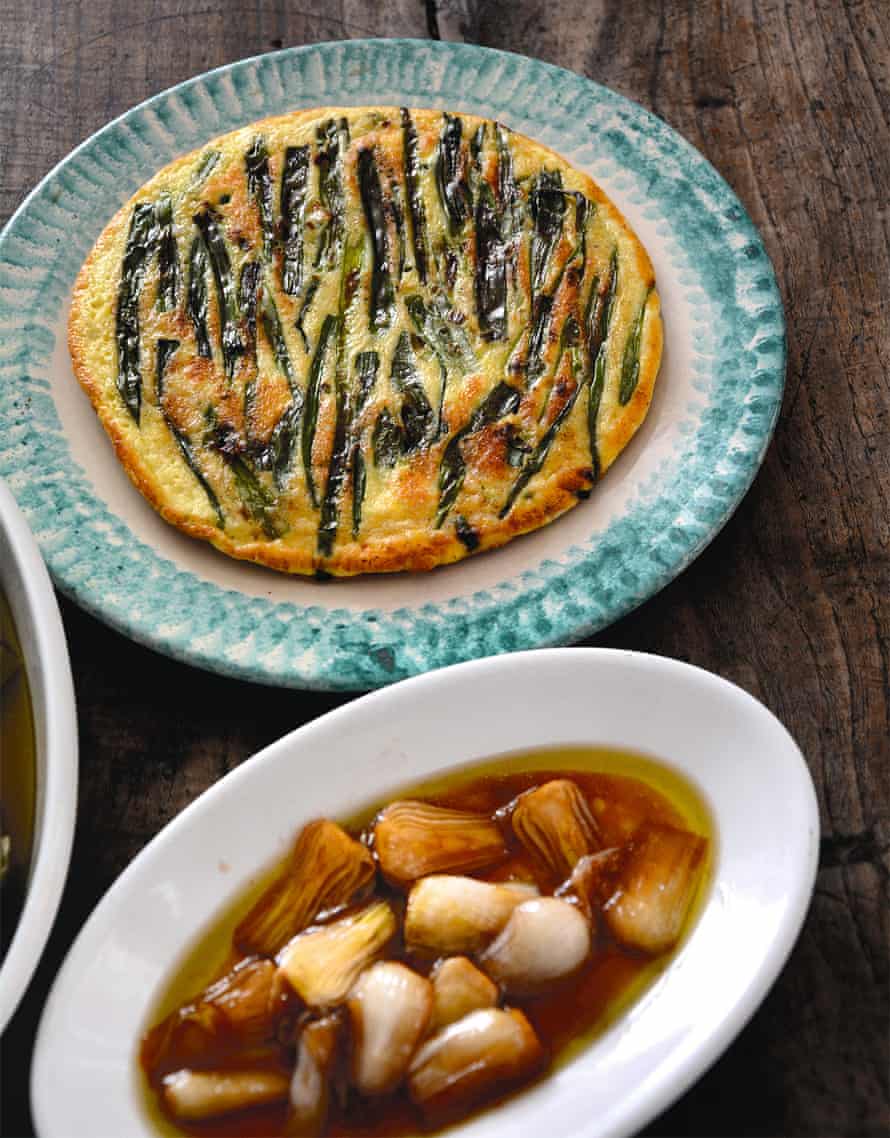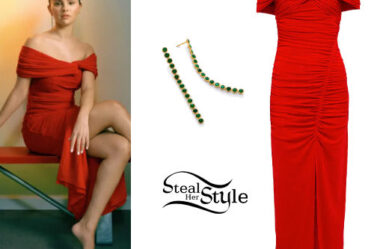
The glass door is propped open. It has a branch painted on it, also a barrel and grapes. It is midday, so the glass-fronted counter is full, its metal trays of vegetables with spoons poised like runners on a starting line. There is chicory, well-cooked romanesco cauliflower, cubes of sweet-and-sour aubergine, grilled red peppers, courgettes with breadcrumbs, artichoke frittata, cheese and various salami.
To the right of the cash desk is the mirrored credenza da vino, or wine cupboard, its four taps ready to fill glass flasks of various sizes: litre, half, quarter. A group of regulars sit on the tables nearest the counter, chatting about Gualtieri, the mayor of Rome. The atmosphere, while different in many ways, reminds me deeply of my Granny’s pub. The place is called Fraschetta da Sandro; the eponymous Sandro is gentle and he asks what we want, then tells us to sit down at one of the tables and he will bring it over.
In Lazio, the origins of the word fraschetta are related to the ancient hamlet of Frascata (now Frascati), so called because local woodcutters built huts from frasche (branches). Subsequently, local winemakers adopted a medieval custom common all over Italy of hanging a frasca, a branch, often of laurel, over the door to tell people they could buy or drink wine inside. These branched marked places became known as fraschette. There was no food, except maybe bread and boiled eggs, so people brought their own. In the cluster of towns known as Castelli Romani – Frascati, Marino, Ariccia – stalls serving thick slices of porchetta are inextricably linked with fraschette, some of which remain unchanged. Others evolved, and the new generation of fraschette in cities took their own shape, food becoming common – cheese, salumi, vegetables cooked and pickled, and bread, obviously, although wine remains the reason.
A quarter of white wine arrives at the table, as well as a plate of mixed vegetables, some bread, fingers of cheese fanned out like the sun, and a frittata. This week’s recipe is inspired by that. Also by a bunch, rather than a branch, of spring onions, the green bits for frittata, the bulbs for a pan with water, sugar and vinegar, where they are simmered until they are soft and surrounded in agrodolce (sweet-and-sour syrup).
Serve the frittata and sticky onions with bread, cheese and a litre, half, quarter or sospiro (a “sigh”, or a 20ml flask) of wine.
Spring-onion frittata and sweet-and-sour onions
Prep 5 min
Cook 30 min
Serves 4
2 bunches spring onions (ie, about 12)
Olive oil
2 tbsp brown sugar
2 tbsp red-wine vinegar
Butter
8 eggs
2 tbsp grated parmesan
Salt and black pepper
100g soft goat’s cheese (optional)
Cut the bulbs from the green tops of the spring onions. Carefully trim the rooty base of the bulbs, making sure there is still enough intact that they stay whole. If they are large, cut in half through the root; if smaller, leave whole.
To make the sweet-and-sour onions, warm a little oil in a small pan, add all but two of the onion bulbs and stir for a few minutes. Sprinkle over the sugar, then add the vinegar and four tablespoons of water, and bring to a lively simmer. Reduce to a light simmer and cook, stirring often, for 20 minutes. By the end of cooking, the bulbs should be soft and surrounded by sweet and sour syrup.
To make the frittata, warm a couple of tablespoons of olive oil and a little butter in a nonstick pan over a medium-low heat. Finely dice the two remaining spring onion bulbs, add these to the pan with the onion greens, cook gently until soft and wilted, then tip on to a plate.
In a bowl, whisk the eggs with the parmesan, salt and pepper, add the softened onion bulbs (not the greens) and whisk again.
Heat a little butter in a nonstick pan, add the egg mixture, then arrange the wilted onion greens and blobs of goat’s cheese (if using) on the surface. Cook over a gentle heat for 10 minutes. I invert the frittata on to a plate, then slip it. back into the pan to finish the other side, which is slightly messy, but I prefer the finish. Alternatively, do so under the grill.



